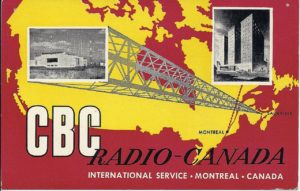Quick, What’s the Fourth Estate? Bet you didn’t know. No fair peeking at Google. Ok, ok, I’ll tell you. The fourth estate consists of newspapers, radio and television stations and other such mass media. Why pray tell are these institutions considered the Fourth Estate? Are there any other “estates?” If so, there ought to be three others. What are they?
The first estate is the executive branch of government; it sees to it that the rules are obeyed, the country defended. The second is the legislature; it enacts the laws; declares war. The third is the judiciary, a sort of referee for the other two, and, between them and the general public. Hark back to when you took civics in high school; you would have heard lots about all of this. What was the point of breaking up government into three constituent elements? Each of the first three estates were supposed to serve as a “check and a balance” against the other two. For the natural proclivity of government is to expand, and, if and when it gets past a certain point, liberty suffers.
Here’s where the fourth estate comes in. According to this not totally incoherent and irrational theory, it is supposed to serve the function of a “check and balance” regarding the other three. Newspapermen, journalists, editorialists, commentators, have many other roles beside keeping a jaundiced eye on big bad government: they tell us all about the weather, what’s on tv, which athletic team is doing what to which others, who’s who on the gossip front, which business is now accused of exploiting which consumers, etc. But these are all secondary to its main political process: poking at, commenting on, uncovering hypocrisies, making sure the other three estates are behaving themselves.
This system worked out for a while not at all too badly. Who guards the guardians? Why, the fourth estate does just that.
But the other three estates didn’t much like being monitored; having their peccadillos uncovered; being made fools of; laughed at. How to stop this arrogance from the untermenchen journalists? This continual sniping at their betters? Politicians had a GREAT idea: buy up, suborn, bribe and subsidize the public media. He who pays the piper calls the tune. This worked out pretty well for a while, but then someone had an even better idea: government ownership and explicit participation in newspapers, radio and television. (The state has not yet nationalized the likes of Google, Twitter, Facebook, YouTube, etc., but if this process continues, keep your eyes peeled for such initiatives.)
Insofar as serving the oversight function, this would be akin to the judiciary taking over the legislature, or parliaments and congresses subsuming the executive, or any other such combination and/or permutation.
What is the empirical evidence on this matter? There are two theories in play. One is the public interest explanation. In this view, government media ownership is needed to cure market failures. Without its input, the public would be deprived of needed information. Can you think of anything more self-serving, particularly in an age of widespread use of cellphones? The other is that “government ownership undermines political and economic freedom” which is based upon an important study of the matter published in the prestigious Journal of Law and Economics.

Where we are at present? Governments the world over are taking more and more control over the print and electronic media. China has just closed down Apple Daily and incarcerated its founder and publisher Jimmy Lai. The countries with the least press freedom are North Korea, Turkmenistan, Eritrea, China, Djibouti, Vietnam, Syria, Iran, Laos, Cuba and Saudi Arabia.
Canada, happily, is on that list. But the Great White North is located further down this totalitarian road than its neighbor to the south. None of the fifty states, nor the U.S. government, own any local newspapers, radio or television stations. Yes, there is the Public Broadcasting Service. But the PBS is privately owned; it is not a branch of government. In sharp contrast, Canada has its Canadian Broadcasting Company which is part and parcel of government. It is supported by tax revenues.

So, if Canada wants to move in the direction of support for the Fourth Estate, the CBC should be privatized, and a full arm’s length relationship established between the two organizations. Then and only then would CBC be able to be part of the Fourth Estate, not part of the other three.
And here we say nothing of the fact that the CBC has its own political slant. It is one thing if a private media baron is able to push his views onto the public ear. He does so with his own funds. But when the CBC promotes its message, it does so with money mulcted from people who support and oppose it, alike. Unfair.
Walter E. Block is Harold E. Wirth Eminent Scholar Endowed Chair and Professor of Economics at Loyola University New Orleans


READER COMMENTS
Aaron
Sep 30 2021 at 3:19pm
I thought the three estates were a reference to medieval social organization: the church, the aristocracy, and the commoners respectively.
kailer
Oct 1 2021 at 11:04am
This was also my understanding.
David Seltzer
Oct 1 2021 at 3:36pm
Those are the origins of Three Estates. In contemporary parlance the Fourth Estate monitors Three Estates of our government.
Phil H
Oct 1 2021 at 9:54pm
My problem with this argument is empirical. The argument certainly seems to make sense on an abstract level: the more two institutions are separate from one another, the less likely they are to capture one another’s interests.
But the two countries where I’ve lived seem to offer an instructive contrast. The UK and China both have state-owned media. But in one, there is a tradition of free speech and extremely vigorous scrutiny of the government; in the other the mass media is merely a propaganda department. The difference doesn’t seem to be ownership per se, but a bunch of other things like freedom of speech and a tradition of dissent. Indeed, Hong Kong had independent private media, and it just got crushed like a fly.
With this in mind, looking back at the theoretical model, I wonder now if it does make sense.It sounds like it might be too much influenced by a model of a *market*, in which fully independent organizations compete against each other. But the ideal relationship between media and government is not competitive. It is influential: the media should be able to influence the government. And complete separation is not the best state to be in when you want to influence. It may be that this is just one of those areas where we have to accept a level of queasy entanglement, because the goals of the fourth estate are inextricably linked to government (and to the private sector; this argument cuts both ways).
Mark Brady
Oct 3 2021 at 1:21pm
A sizeable share of the income of the Canadian Broadcasting Corporation is not financed by taxation, but from advertising revenue, subscriber fees, and other sources.
https://cbc.radio-canada.ca/en/impact-and-accountability/finances/annual-reports/ar-2018-2019/financial-sustainability/revenue-and-other-funds
AMT
Oct 3 2021 at 7:30pm
Well, the $1.2B in government funding is the majority. I disagree with Block’s concern that there is some freedom of the press issue in Canada. Everyone in Canada knows the government funds the CBC and that you should expect a bit of a slant in the news coverage you get from that source. This would only be a problem if other news sources were restricted, but they aren’t. It’s incredibly easy, and free, to find any other source you desire. So the real problem is whether this subsidy is worth the $1.2B, and I think it’s nowhere near worthwhile.
Mark Z
Oct 4 2021 at 8:24pm
I think the reason it’s a freedom of the press issue is because state-funded media crowd out private competitors that are now at a competitive disadvantage. If a government subsidizes its favored media sources generously enough (which raises the tax burden of non-state-funded media), it is effectively doing the equivalent of taxing non-state-preferred media outlets. The CBC may be at such a small scale as to be practically irrelevant, like a minute tax on other media consumption, but state-run/subsidized media, if scaled up enough, can be as punitive as repressive laws.
AMT
Oct 4 2021 at 10:54pm
Crowding out is not an issue.
https://en.wikipedia.org/wiki/List_of_Canadian_television_channels
Most of the list are not news channels, but is that not enough? Fine, scroll to the bottom of the page and click on the provincial or territorial stations and see what proportion are in the cbc network vs anything else…
You very quickly see the CBC is a tiny, tiny fraction of the tv content available. Never mind that tv is only a fraction of the news that people younger than boomers consume anyway. It’s just a waste of money.
David Q
Oct 3 2021 at 3:04pm
“The countries with the least press freedom are North Korea, Turkmenistan, Eritrea, China, Djibouti, Vietnam, Syria, Iran, Laos, Cuba and Saudi Arabia.
Canada, happily, is on that list.”
I suspect you mean “is not on that list.”
Comments are closed.